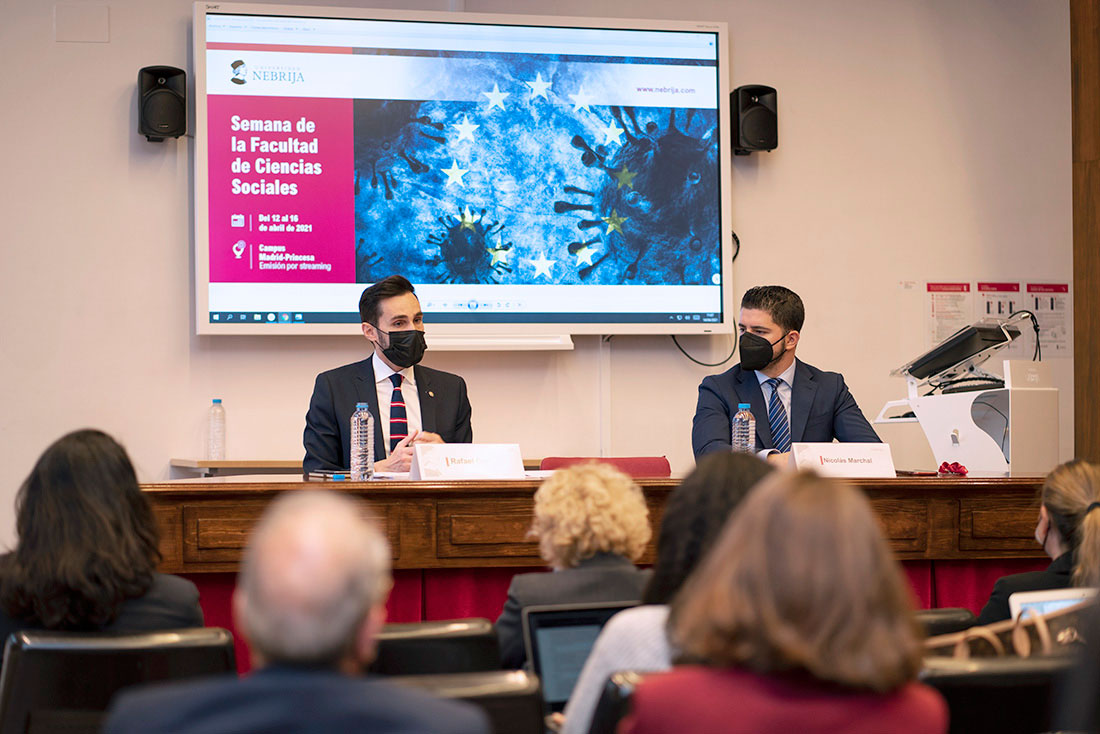Bachelor's degree in Security

With the authorization of the Director of Security of the Ministry of Internal Affairs
The Bachelor's Degree in Security is the ideal academic training for all those who wish to work professionally in the field of Security, as well as for all those who are carrying out professional activities in this sector of the labor market.
It is the right degree for all professionals of Public and Private Security. In addition, the curriculum is oriented and specialized through its specific seminars in the latest challenges of cybersecurity and intelligence.
The Bachelor's Degree in Security is ideal and of great interest because it provides a level of academic training of great usefulness and professional prestige, which serves as advancement in the professional career of all members of the State Security Forces and Bodies, such as the Civil Guard, National Police Corps, Autonomous Police and Municipal Police.
The studies of this Undergraduate Degree offer the students scientific training of an interdisciplinary nature in the different aspects related to the prevention and understanding of the Security phenomenon.
It has an essentially participatory methodology that combines the theoretical concepts and contents with its practical and interactive application, through the discussion of real cases extracted in many occasions from the professors' own professional experience. Thus, students acquire the ability for analysis, argumentation and decision-making which are essential to successfully develop their future or present professional activity.
University extension activities have been designed to complement the teaching and bring students closer to the daily work reality, which include seminars, conferences, colloquium-debates and visits to different institutions and companies such as: Higher Police Station of the Scientific Police of Madrid, Laboratories of the Civil Guard, courts, registries, prisons and security companies, among others.
It offers an opening to the working world of Security through the carrying out professional internships in private security companies and public institutions.

We are Hackers League
4th Ethical Hacking League
We are Hackers League is a pre-university competition designed for 1st and 2nd-year baccalaureate students. It is open to students from any educational track who have an interest in exploring new technologies and their practical applications in both personal and professional contexts. The competition comprises two phases: an initial training phase where students learn the fundamentals of ethical hacking, as well as vulnerabilities in everyday computer systems. This is followed by a competition phase in which participants demonstrate their acquired knowledge and skills.
Online modality that allows one to combine professional and personal life
Curriculum
BOE No. 66, of March 18, 2015
All our degrees and curricula have been prepared in accordance with the new guidelines set by current legislation, having already been verified by the National Agency for Quality Assessment.
The student must take 240 credits
First year 60 ECTS
First Semester 30 ECTS- 6 ECTS | Fundamentals of Economics
- 6 ECTS | Risk analysis and security planning
- 6 ECTS | Sectoral security
- 6 ECTS | The Spanish Constitution and its legal system
- 6 ECTS | History of contemporary international relations
Second Semester30 ECTS- 6 ECTS | Introduction to Law
- 6 ECTS | Criminal Anthropology
- 6 ECTS | Fundamentals of Civil Law: legal norm, legal entity and relationship
- 6 ECTS | General concepts of Criminal Law and theory of punishment
- 6 ECTS | Competence Development Seminar I
Second year 60 ECTS
First Semester 30 ECTS- 6 ECTS | Contemporary world
- 6 ECTS | History of Political Thought
- 6 ECTS | Administration and management of human and material resources
- 6 ECTS | Crimes and offenses in the Spanish legal system
- 6 ECTS | Prevention of occupational risks, fire safety and civil protection
Second Semester 30 ECTS- 6 ECTS | Social psychology
- 6 ECTS | Modern languages
- 6 ECTS | Physical, logical, electronic and people security
- 6 ECTS | Procedural law and criminal litigation
- 6 ECTS | Competence Development Seminar II
Third year 60 ECTS
First Semester 30 ECTS- 6 ECTS | Public security and national defense
- 6 ECTS | International Human Rights Regime
- 6 ECTS | Structure and dynamics of the international society
- 6 ECTS | Intelligence for security and defense
- 6 ECTS | Administration and operation of a security department
- 6 ECTS | International organizations
Second Semester 30 ECTS- 6 ECTS | Security Management and Administration
- 6 ECTS | Participative and Solidarity Spirit, Human Rights
- 6 ECTS | Judicial and police cooperation in the EU
- 6 ECTS | Military humanitarian law
- 18 ECTS | Eval. of the Development of Skills in the Company
Fourth year 60 ECTS
First Semester 30 ECTS- 6 ECTS | Rules of Evidence
- 6 ECTS | Private security: regulations
- 6 ECTS | Applied Statistics
- 6 ECTS | Alternative methods of conflict resolution
- 6 ECTS | Interrogation, testimony and expertise
- 6 ECTS | Competence Development Seminar III
Second Semester 30 ECTS- 6 ECTS | Deontology of the security and defense professional
- 6 ECTS | Emerging rights: the new challenges of law
- 6 ECTS | Analysis and resolution of international conflicts
- 6 ECTS | Security and defense policies
- 18 ECTS | Final Research Project
More info about the subjects
Professors
| Profesores Professors | Porcentaje de Doctores Percentage of PhD holders |
| 57 | 68,42% |
 Mónica Pucci Rey
Directora del Grado en Seguridad (modalidad presencial y a distancia)
Director of Bachelor's Degree in Security (classroom attendance and online modality)
Mónica Pucci Rey
Directora del Grado en Seguridad (modalidad presencial y a distancia)
Director of Bachelor's Degree in Security (classroom attendance and online modality)
 Pedro Agudo Novo
Profesor
Professor
Pedro Agudo Novo
Profesor
Professor
 Adela Alija Garabito
Profesora
Professor
Adela Alija Garabito
Profesora
Professor
 Anabel Amores Ampuero
Profesora
Professor
Anabel Amores Ampuero
Profesora
Professor
 José María Bautista Samaniego
Profesor
Professor
José María Bautista Samaniego
Profesor
Professor
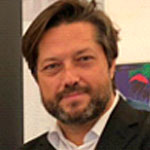 David Blanco Toldos
Profesor
Professor
David Blanco Toldos
Profesor
Professor
 Gema Alejandra Botana García
Profesora
Professor
Gema Alejandra Botana García
Profesora
Professor
 Sonia Boulos
Profesora
Professor
Sonia Boulos
Profesora
Professor
 Ramón Carrillo Valdés
Profesor
Professor
Ramón Carrillo Valdés
Profesor
Professor
 Álvaro Cremades Guisado
Profesor
Professor
Álvaro Cremades Guisado
Profesor
Professor
 José Luis Cruz Beltrán
Profesor
Professor
José Luis Cruz Beltrán
Profesor
Professor
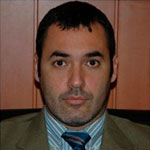 Óscar Francisco Díaz Santana
Profesor
Professor
Óscar Francisco Díaz Santana
Profesor
Professor
 Nadia Dibsi Ávila
Profesora
Professor
Nadia Dibsi Ávila
Profesora
Professor
 Ana Isabel Dieguez Tapia
Profesora
Professor
Ana Isabel Dieguez Tapia
Profesora
Professor
 David Docal Gil
Profesor
Professor
David Docal Gil
Profesor
Professor
 Carlos Espaliu Berdud
Profesor
Professor
Carlos Espaliu Berdud
Profesor
Professor
 Carlos Farelo Ferrera
Profesor
Professor
Carlos Farelo Ferrera
Profesor
Professor
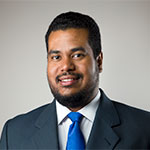 Luis Armando García Segura
Profesor
Professor
Luis Armando García Segura
Profesor
Professor
 Manuel González Hernández
Profesor
Professor
Manuel González Hernández
Profesor
Professor
 Gustavo Horna Zamora
Profesor
Professor
Gustavo Horna Zamora
Profesor
Professor
 Giuseppe Kodjack Gangi Guillen
Profesor
Professor
Giuseppe Kodjack Gangi Guillen
Profesor
Professor
 Susana Laguna Hermida
Profesora
Professor
Susana Laguna Hermida
Profesora
Professor
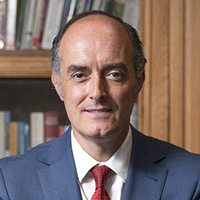 Alfonso López de la Osa Escribano
Profesor
Professor
Alfonso López de la Osa Escribano
Profesor
Professor
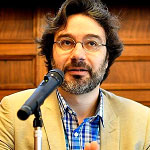 Carlos López Gómez
Profesor
Professor
Carlos López Gómez
Profesor
Professor
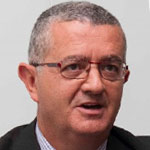 Antonio Nicolás Marchal Escalona
Profesor
Professor
Antonio Nicolás Marchal Escalona
Profesor
Professor
 Andreea Marica
Profesora
Professor
Andreea Marica
Profesora
Professor
 Elena Navrotskaya
Profesora
Professor
Elena Navrotskaya
Profesora
Professor
 María Ángeles Palacios García
Profesora
Professor
María Ángeles Palacios García
Profesora
Professor
 José Luis Pérez Pajuelo
Profesor
Professor
José Luis Pérez Pajuelo
Profesor
Professor
 Rafael Pérez Romero
Profesor
Professor
Rafael Pérez Romero
Profesor
Professor
 Ana Quintana Jiménez
Profesora
Professor
Ana Quintana Jiménez
Profesora
Professor
 Alberto Rico Sánchez
Profesor
Professor
Alberto Rico Sánchez
Profesor
Professor
 Paola Rodas
Profesora
Professor
Paola Rodas
Profesora
Professor
 Sonia Rumayor
Profesora
Professor
Sonia Rumayor
Profesora
Professor
 Pablo Rafael Ruz Gutierrez
Profesor
Professor
Pablo Rafael Ruz Gutierrez
Profesor
Professor
 Susana San Cristóbal Reales
Profesora
Professor
Susana San Cristóbal Reales
Profesora
Professor
 Eugenia Smoktiy Bekhtereva
Profesora
Professor
Eugenia Smoktiy Bekhtereva
Profesora
Professor
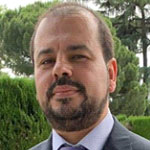 Raúl Varela Tena
Profesor
Professor
Raúl Varela Tena
Profesor
Professor
More Academic Information
Official Degree:Bachelor's Degree in Security
Center responsible:School of Law and International Relations
Branch of knowledge: Social and Legal Sciences
Available places: Classroom attendance: 45
Blended: 100
Online: 100
Type of Education: Classroom attendance / Blended / Online
Academic year in which it was implemented: 2015-2016
Languages: Spanish
University Services: [+info]
Skills
General SkillsInstrumental:
- Analyze and summarize information that allows them to formulate judgments that come from personal reflection, especially in the field of social sciences.
- Organize and manage their own activity and time.
- Use their own language correctly speaking and in writing.
- Collect and interpret the relevant data with a scientific outlook; transmit the information prepared correctly and with the appropriate arguments.
- Present arguments in an orderly and understandable way.
- Apply ICTs to the scope of the Social Sciences.
- Solve problems in the social fields related to the degree.
- Be able to develop ideas and solutions using an appropriate professional language.
Personal:
- Work in multidisciplinary and specifically legal and Security and Defense teams.
- Coordinate and direct work teams.
- Exercise and develop emotional intelligence skills; ability to establish positive interpersonal relationships in their scientific and professional activity.
- Value and respect cultural diversity.
- Acquire and strengthen reasoned and autonomous criteria, as well as ethical commitment in the exercise of the profession.
- Work in an international context.
- Be sensitive to issues of social interest, public policies and corporate social responsibility.
- Possess an ethical commitment: critical capacity and ability to show attitudes consistent with ethical and deontological concepts.
Systemic:
- Acquire critical awareness for the promotion of respect and human rights, equality and universal accessibility.
- Develop skills for autonomous learning in the field of social sciences.
- Enhance the ability for initiative, creativity, leadership and improvement in the development of professional life.
- Enhance the strategic vision in the development of the profession.
- Feel a motivation for quality.
- Be able to function effectively in an organization in environments under pressure.
The students will be able to:
- Know the instruments and techniques necessary for the evaluation and prediction of crime, and threats to security.
- Know and understand different types of professional languages, including: legal, medical, psychological, sociological and technical.
- Carry out and execute reports and scientific and technical projects related to security and defense.
- Develop a critical perspective on social problems respecting human rights and current law.
- Understand in a basic way the functioning and organization of the Spanish security and defense system.
- Know the different sociological configurations related to crime and its relation with different domains and sociological contexts.
- Know the main risk factors of criminal behavior, as well as antisocial behaviors.
- Describe and know the different alternative strategies for conflict resolution.
- Be able to apply psychosocial knowledge to the study and understanding of new threats to national and international security.
- Know how to propose prevention and/or intervention strategies.
- Know the structural principles of the State, as well as the foundation of political systems.
- Know the conceptual bases of private law and public law.
- Know the scientific and methodological foundations of Security.
- Examine and summarize criminological information for the expert analysis of a specific case.
- Know and understand the guarantees and principles of the Spanish judicial system.
- Offer solutions to the different problems of crime and security risk from a multidisciplinary perspective.
- Understand and know the fundamentals, nuances and psychological and social motivations of human behavior and its practical application.
- Know how to apply and understand general knowledge about sociology, ethics, psychology, law, economics and professional deontology.
- Know the genesis and development of the main legal institutions.
- Acquire critical awareness for the analysis of the legal system.
- Be able to become familiar with the reading and interpretation of legal and jurisprudential texts.
- Be able to manage services and activities of surveillance and protection of goods, establishments, shows, contests or conventions.
- Be able to organize protection services for specific people, with the corresponding authorization from the Ministry of Internal Affairs
- Be able to manage and organize the installation and maintenance of security mechanisms, devices and systems.
- Be able to organize and train staff to carry out activities of depositing, custody, counting and classification of coins and bills, securities and other objects that, due to their economic value and expectations that they generate, or due to their danger, may require special protection, without prejudice to the activities of financial institutions.
- Be able to organize the transport and distribution of the objects referred to in the previous section through different means, doing so, where appropriate, by vehicles whose characteristics will be determined by the Ministry of Internal Affairs, so that they cannot be confused with those of the Armed Forces or with those of Security Forces.
- Be able to organize the operation of power stations for the reception, verification and transmission of alarm signals and their communication to the Security Forces, as well as the provision of response services whose realization is not within the competence of said Forces and Bodies
- Planning and advising on security activities at the highest level.
- Be able to determine the requirements and characteristics that must be met by companies and entities dedicated to private security.
- Be able to determine the personal and professional conditions that must be met in the provision of services and conduct of private security activities.
- Be able to determine the characteristics that must be met by the technical and material means used in the provision of services and conduct private security activities.
- Be able to specify for a given service, the functions, duties and responsibilities of private security personnel, as well as the qualifications and functions of the head of security.
- Know and be able to interrelate with the competent bodies of the Ministry of Internal Affairs, in each case, for the performance of the different security functions.
- Be able to organize the protection of storing, handling and transporting of explosives.
- Be able to impart knowledge and perform the appropriate tests that demonstrate the preparation and ability necessary for the exercise of safety functions.
- Be able to direct and manage security companies and private security personnel.
- Be able to plan private security services abroad.
- Be able to organize professional security services in International Organizations dedicated to Security and Defense.
- Have a deep knowledge of the structure and geographic scope in which the main International Organizations dedicated to Security and Defense operate.
- Have a thorough knowledge of the main international organizations dedicated to conflict resolution and internal functioning.
- Have a thorough knowledge of the structure and functioning of the main Ministries and agencies in Spain dealing with Security and Defense.
- Have an in-depth knowledge of the means of resolving conflicts offered by Spanish regulations, alternatives to judicial channels.
- Have a thorough knowledge of how to obtain testimonies and practice expert opinions to make them valid in judicial and extrajudicial proceedings in Spain.
- Have an in-depth knowledge about how to make rogatory commissions abroad: obtaining evidence abroad to enforce them in national judicial proceedings.
- Have a thorough knowledge of the structure and functioning of the Organisms created by the European Union for judicial and police cooperation.
- Have a thorough knowledge of the procedures used to compile statistics in the framework of Security and Defense.
- Be able to situate the legal regime of any information that appears in the framework of the information society and new technologies related to Security and Defense.
- Obtain solid legal knowledge about the testimony regime in Spain and its free appreciation by the Judge, compared to the thesis of weighted evidence of Anglo-Saxon Law.
- Have a thorough knowledge of the legal regime of testimony to practice abroad in criminal matters.
Online Studies
Metodology
Metodology
The Bachelor's Degree in Security follows a methodology based on teaching-learning, centered on the student, which promotes active participation and promotes the development of general and specific skills that demonstrate knowledge, skills and attitudes applicable in a future professional practice.
The teaching methodology is based on the use of ICTs as a support to collaborative work (forums, chats, meeting by videoconference), the teacher's directions (agenda, bulletin board, document folder, links) and the submission of assignments (task mailbox and work tools). The Blackboard Virtual Campus will be used for this purpose.
All these techniques mean that the student takes on an active role in his/her academic training. In addition, the work of the professor acquires a guiding dimension of support and guidance, which must be consistent with a transparent and formative evaluation system that faithfully reflects the knowledge and skills acquired.
The educational activities (EA) are carried out through different teaching strategies: theoretical classes, practical cases, online tutorials, and academic activities among which are the reading and analysis of jurisprudence, assignments through virtual resources, search and selection of jurisprudence and legislation; exams and activities for evaluation, individual or small group work.
Educational Activities
The educational actions of this Bachelor's Degree in their distance learning option are specified in the following:
AF1. Online theoretical classes
The students have online work sessions, which share some aspects of the in-person lectures and in others they are differentiated by their own nature.
The subjects in which studying in the Virtual Campus has more importance have a prepared EDUCATIONAL ITINERARY, in which the units of the curriculum are described. The structure of the Itinerary is hypertextual, since it has content Blocks, divided into Units. In each of these units, a complete lesson is provided; other related topics are referenced, hyperlinks are used to explain or present; complementary information on concepts, definitions, bibliography is added through sales and connections with the Documentation Center of the subject. The professor can also teach a lecture using the VIDEOCONFERENCE system.
The biggest difference between the in-person lectures and the realization of the platform's content units, in addition to being present or not, is the chronological sequence, since the student can connect to the platform for as long as he/she wishes, at the time he/she wishes. They can interrupt their work whenever they want, they can interact with the platform itself, using all forms of hypertextuality and connections to Internet sources through the documentation center. They can also interact with their classmates and with professors through the FORUMS, to ask questions or comment on some content; or in a more conventional type of learning, they can print all the lecture material of the unit and read it wherever they want.
The virtual Campus of each subject also allows the professor to display all kinds of documents, labeled, in the DOCUMENTS folder, with contents of the subject, in Word, Power Point, videos and audio formats, which explain the contents of the subject in question, they exemplify it, they expand on it.
The academic Forum of each subject allows to build theoretical and practical knowledge through the interaction of students with different groupings. There is the General Forum, in which all the students and the professor participate, and the Group Forum, in which the students work in small groups, always organized by the professor and supervised by his/her, in which they can share documents of all types with just the members of the group.
AF2. Online practical cases
The practical cases in the distance learning modality will be carried out using the Virtual Campus. The professor will upload the case that students must study in the DOCUMENTS folder, and they will submit it via the task mailbox for correction by the professor. There is a specific Forum for the discussion of the relevant issues of the case by all the students and the professor, and Debates will be held through the forum.
AF3. Reading and analysis of articles and solved cases
The professor, as in the previous case, will post the required reading texts in the Documents folder, and the students will have to analyze them according to the same methodology as in the work described below.
AF4. Distance tutoring sessions
The personalized nature of teaching at Nebrija University is based on the deep belief that teaching is not reduced to mere instruction. In this sense, the professor is not only a transmitter of knowledge but a trainer who guides and assists students in their needs, which are not limited to the acquisition of concepts, but also to the development of procedures and attitudes. The tutoring sessions are responsibility of the professors of the subjects.
Professors are responsible for guiding and assisting students with organizational and didactic difficulties, paying special attention to personalized advice on the skills and skills they must exercise to carry out academic work outside of class sessions. They try to create a space designed to listen and advise students about topics that are of concern, a quiet environment, free from interruptions, that favors dialogue.
In its distance learning modality, within the Virtual Campus, there will be a tutoring site, through which the students can bring up their questions with the professor of the subject, who will respond through the same channel.
In the same way, five mechanisms of assistance are implemented for the student in the tutoring sessions.
- The academic forums of each subject, moderated by the professor, with the participation of all the students, where they can consult and share the questions raised by the students and professor's answers.
- Individual email between student and professor, for individual clarification.
- Telephone tutoring at a pre-scheduled time for each subject.
- Telepresential tutoring using tools such as Skype, that allow direct visualization between teacher and student or the visualization of documents.
- Obviously, students who wish to and can travel can arrange a personal face-to-face tutoring session with the professor at the Campus of Nebrija University.
AF5. Assignments through virtual resources
The discussion of the specific aspects of these assignments is carried out in the "Forums" section, in which the students debate about these cases, as well as the related topics that the professor thinks is appropriate to bring up.
The presentation, individual or in groups, is made by the students through the Task Mailbox and/or by videoconference. Each subject has its own space in the Virtual Campus, which allows the sharing of documentation and images, and the holding of debates by real-time videoconference.
At the same time, in the ASSIGNMENTS tool, the professor and the students can share the work that everyone does, once they have been commented and evaluated by the teacher, so cooperative learning is clearly facilitated: everything done by each student can be available to the class group, if the teacher deems it appropriate.
AF6. Individual student work
This educational activity is exactly the same as in the classroom attendance modality, and consists of the student having to do the reading and study of manuals, articles, notes, legal texts, as well as the cases and individual assignments given to him/her. This individual work or study is reflected in the evaluation system in terms of ECTS credits.
AF7. Search, selection, organization and hierarchization of information, legislation and jurisprudence in different sources, through IT tools
The student must be able to locate, classify and analyze the different information sources found on the Internet. To this end, the professor will insert search exercises on legislation and jurisprudence on specific issues in the corresponding activities through the different existing databases and web pages that collect them.
In the subject sheets enclosed in this document are the new educational activities that are established in each subject with the corresponding ECTS credits that are awarded, without describing each one again, as we refer to what was just described.
As a general rule, in the distance learning modality, the individual work of the student and the cases and distance assignments will have a greater weight than the distance theoretical classes, unlike in the classroom attendance modality, where the lectures have a greater relevance.
AF8. Complementary educational activities
Seminars, specialized congresses and conferences on topics related to the areas of knowledge.
AF9. Professional practical activities
The students will carry out internships of a duration equivalent to 18 ECTS credits starting in the 6th Semester in companies with which the university has agreements. The students will carry out the tasks that are assigned by the tutor responsible for their follow-up in the institution in which the internships are carried out. These training activities will be supervised by the tutor of the University, who will be responsible, in coordination with the tutor of the center and the student in question, to evaluate their process of professional and personal evolution in the internship center. The practical activities will always be in-person, in the institution in which they are carried out. However, all will be followed by periodic tutorials, with the person in charge of the follow-up in person, at the university, or virtual, through communication by e-mail, video conference or Skype.
AF10. Preparation, presentation and defense of the Final Research Project
Academic paper equivalent to 18 ECTS credits on any of the topics proposed by the Department.
Grading System
The grading system of the distance learning modality does not change significantly with respect to that of the classroom attendance modality, in the sense that the same formative activities are evaluated, although, in its distance education option.
In this way, the evaluation procedures for the distance learning modality are:
- Participation in distance forums, chats, blogs and other collaborative media, and remote participation in the sessions.
- Preparation of individual and group work.
- Evaluation of complementary reading.
- Resolution of practical cases.
- Online and offline written tests: There are two types of online written tests:
-
- a) Self-assessment test. These self-assessment tests will also be implemented on the online platform so that the student can repeat them and see the score obtained as many times as he/she wishes.
- b) Knowledge exam. Longer than the tests and evaluated by the teacher. Your results will be published on the platform after a certain time.
The final exam of each subject, which will always be taken in person.
In the final grade of the subject, the grade of said final test is weighted with the rest of the assessment elements, with variable percentages of weighting of the different concepts, depending on the specific contents of the subject. The specific percentages of weighting in each subject appear in the documentation delivered to the student at the beginning of the course.
All grades will be accessible through the Internet, in the student's private area.
Grading examples:
Subject: Risk analysis and security planning
Grading system in ordinary call: Participation in remote forums, chats, blogs and other collaborative media, and remote participation in teaching sessions: 10%. Preparation of individual and group work: 15%. Resolution of practical cases: 15%. Knowledge test: final exercise 60% (a minimum of 5 is required in the exam).
Calendar and Schedules
Academic calendar
Access and Admission
Access
The Antonio de Nebrija University, in addition to complying with the conditions of access to bachelor's degree studies in accordance with current legislation, requires the student to pass its own entrance tests, both for undergraduate and postgraduate degrees.
Likewise, Nebrija University respects the provisions of Article 13 of RD 1892/2008 and its subsequent modifications regarding the passing of the university entrance exam:
“1. Access to the Spanish university, both public and private, to study the courses that lead to obtaining the different degrees of the official university programs valid throughout the national territory, will require, in general, the passing of the test referred to in article 38 of Organic Law 2/2006, of May 3, on Education, which is regulated in this royal decree, without prejudice to the other cases provided for in article 3 of this royal decree”.
Students who are in any of the following academic situations may request admission to the first year of studies:
- Students from 2nd year of Baccalaureate and Selectividad (University Entrance Exam), or COU (College preparation courses) and Selectividad
- Students who have completed their secondary education studies abroad and have access to the University in their country (for the member countries of the European Union or signatories of the agreement on the European Economic Area, or those with whom an agreement has been signed for degree recognition).
- Students who have completed their secondary education studies abroad and have passed the University Entrance Exam (Selectividad) for Foreigners (other educational systems).
- Students who have the degrees of Senior Technician corresponding to Vocational Training and Artistic Studies, or Senior Sports Technician.
- Students from higher-level educational cycles (2nd degree of VT).
- Persons over the age of twenty-five, prior to examination, who do not meet the requirements set forth in section 2 of article 42 of Organic Law 6/2001, of December 21, and its subsequent modifications
- People over the age of forty who accredit their work or professional experience and do not have the legally required academic qualification, and those over the age of forty-five, prior to examination, in accordance with the provisions of article 42.4 of Organic Law 6 / 2001, of December 21, and its subsequent modifications.
On the other hand, students who have completed university studies at another Spanish or foreign university and wish to continue them at the Antonio de Nebrija University, or that may wish to begin other studies at this University, may also apply for admission.
Students must submit the application form for admission to the University along with the required documentation. The submission of the application for admission, together with choosing the date to take the admission tests, is done personally during a visit to the University, or sent by mail to the University. Likewise, you can start the admission process by filling out the online admission form.
The Department of Promotion and Admissions provides confirmation to the candidate regarding the receipt of the printed or online application, and summons him for the admission tests. On the day of the test, the candidate must submit, if he has not done so earlier, the following documentation:
- Photocopy of the academic record.
- Photocopy of ID or passport.
- Two passport-sized photographs.
- Letter of introduction from a professor/tutor of the center of origin, or person with whom he has had academic or professional contact.
Admission
All students who wish to study their university degree at the Antonio de Nebrija University must pass an admission process consisting of:
- Evaluation of the academic record: With a value of 40%
- Evaluation of the results obtained in the admission tests. These tests that take place on a single day -morning or afternoon- have an approximate duration of 2.5/3 hours and consist of:
- Psychotechnical test: 10%
- Specific test of the degree/s chosen/s: 20%
- English Level Test: 10%
- Personal interview with a University professor: 20%
The testing periods are as follows:
- Early call: Tests held in the months between February and May.
- Ordinary call: Tests held in June and July.
- Extraordinary call: Tests held in September.
These tests can be taken in Madrid or in other provinces. In general, these tests are taken in person.
In Madrid, the tests are carried out at the Madrid - Princesa Campus and at the Life Sciences Campus in La Berzosa. Check with your academic advisor for schedule availability
In provinces other than Madrid, the Department of Promotion and Admissions goes to the cities where this department has, throughout the academic year, provided advice on Nebrija at different Secondary Education Centers. These Admission Tests consist of a first round in the early call, and a second round in the ordinary call, and since they are taken in person, the identity of the candidate must be proven by presenting his or her DNI. These tests are accompanied by an Information Session for parents, which is run by one of the Department's academic advisors.
Candidates residing outside the Spanish territory or students who have opted for the distance learning modality may take the admission tests online.
All the documents submitted by the student, together with the result of the Admission Tests, are assessed by the Admissions Commission, composed of the director of the Department of Promotion and Admissions, the Director of the Secretary of Courses and the Coordinator of the Degree. In said Commission they assess that the documents are administratively correct and whether the candidate's profile matches the degree's entrance profile.
In addition to meeting the established access criteria, the Admissions Commission will accept or not accept the admission of a student taking into account the aforementioned criteria.
At the beginning of each academic year, the academic coordinators are responsible for updating the specific tests of each degree in order to ensure that interested candidates adapt to the profile. The results of the admission tests are communicated in writing and/or by phone to each candidate within approximately 3-5 days.
Pre-enrollment
Once the admission has been communicated, candidates must reserve a place. This economic pre-enrollment guarantees the candidate's place at the University.
Enrollment
Pre-enrolled candidates who wish to formalize their academic enrollment at the University must, within the deadlines indicated, follow these steps:
- Submit documentation: accredit by documents that they have fulfilled the requirements established by Spanish university legislation to begin/continue their university studies at Nebrija University.
- Formalize the enrollment process online: The self-enrollment service of the Nebrija website allows admitted students to complete all academic, economic and administrative procedures, without having to physically travel to the University. The admitted students will formalize their self-enrollment within the deadlines indicated. To do this, they will receive at their address, along with their admission letter, the access code and personal password necessary to be able to complete their academic and economic self-enrollment. Once the documentation submitted is verified and self-enrollment is formalized, the candidate acquires the status of student of Nebrija University. At all times during the self-enrollment process, the student has the technical assistance of the Computer Services department, as well as academic assistance from his future Tutor, who will guide the student in choosing subjects.
- Payment of the annual registration fees of the degree for which he/she was admitted. The place reservation fee is a part of the annual registration fees.
The admission criteria in the case of students enrolled in distance learning degrees will be the same as the class attendance modality, but will include the following additional criteria:
- Real possibility of correctly following the educational activities provided for in the requested degree (which may have a certain attendance component). This will be assessed during the personal interview, in which the interviewer, in addition to all the access and admission criteria already mentioned for the class attendance modality, will assess whether the candidate's work and personal situation, his availability, etc. is compatible with the normal development of the teaching-learning process and activities with the expected academic load. As a result of this joint analysis, which will entail a mutual exchange of information, the student can be guided about his real possibilities, the recommended annual enrollment load, the mandatory presence in some activities or, even, if necessary, rejecting his candidacy, if a there is a possibility of not being able to satisfactorily carry out the programmed educational activities.
The Antonio de Nebrija University does not allow taking more than one teaching modality simultaneously, but it does allow changing modality from class attendance teaching to distance learning, or vice versa. The General Regulation for students includes the specific regulations for the change of modality, in its article 7.
Employability
Career Opportunities
In recent years, the demand and activity of this Undergraduate Degree have grown exponentially, due to the wide variety of its professional opportunities in the broad field of Security.
On the one hand, it attracts those who carry out their own Private Security activities, such as guards, bodyguards, Security Chiefs and Directors and Private Detectives.
And on the other hand, it serves for the professional promotion of those who work in Public Security, such as judicial and penitentiary officials; and also, the Forces and Bodies of the Security of the State like the National Police, Autonomous Police, Municipal Police and Civil Guard. International Security and Defense Consultant.
Employability recognized in the Rankings
The commitment of Nebrija University to the academic requirement, training in leading companies and institutions, innovation in multidisciplinary programs and international projection, places the University in the top positions of the most important rankings.
The International Ranking QS Stars awards Nebrija University the maximum score in the quality and satisfaction of students in teaching, employability of the graduates and the internationalization of the institution.
The national rankings also recognize Nebrija University as the first Spanish university in teaching and second in employability, highlighting its performance in research, knowledge transfer and internationalization.
The Bologna Declaration formalized the principles on which the European Higher Education Area should be based: quality, mobility, diversity, competitiveness and employment growth.
From this, Nebrija stands as an academic model of reference, educating students with excellent individual behavior, interaction with their environment and motivated by and for constant and continuous training. The Nebrija Institute of Professional Skills works every day to achieve the differentiation of our students through the development of attitudes and skills.
The main objective is for students to achieve the best of themselves through the development and empowerment of their personal skills and resources through personal self-knowledge.
In addition, some of the professional skills that are worked on within the three seminars are those related to interpersonal skills and active communication skills and negotiation, indispensable for our students to know how to transmit ideas, to argue them, to provide information and opinions in an adequate, clear and convincing way.
Within what will be their work performance, other aspects such as teamwork, conflict resolution and project management ability will be worked on.
In the third block, skills worked on are those aimed at increasing the student's employability. They will work with tools and techniques for job searching, and perform tasks that achieve in the student a greater use of their personal skills.
For all this we have currently active experts in selection of people, professionals dedicated to personal and professional training and professionals dedicated to the world of communication and the arts.
In this way, and in a complementary way to his/her specific training, we help the student create a differentiating pattern in the social and business environment in which he/she will be immersed when he/she finishes his/her studies.
Activities in Security
Visit all the Activities of the School of Law and International Relations
School of Law and International Relations Week
Rafael Pérez Ruiz, Secretary of State for Security, participated in the School of Social Sciences Week at Nebrija University, in which he assured that "in this pandemic we confirmed that health is also security."
XLII CICA Conferencia Internacional sobre Conflicto y diálogo intercultural
El respecto, la tolerancia y el diálogo fueron los conceptos clave en el XLII CICA
Semana de Reporteros Sin Frontera
El ejercicio del periodismo se ve amenazado y en grandes dificultades en muchos países del mundo. Los periodistas asisten en primera línea a conflictos y situaciones que ponen al límite su integridad física y mental para poder seguir llevando a cabo su profesión y en muchos casos estos profesionales se ven desvalidos y sin respaldo alguno de medios o instituciones.
Opening ceremony of the academic year
Opening Ceremony of the academic year at the Madrid-Princesa Campus of Nebrija University.
IMPULSA I. Nebrija Employment Event
Event in which Nebrija talent connects with companies, organized by Nebrija Alumni and the Professional Careers department.




